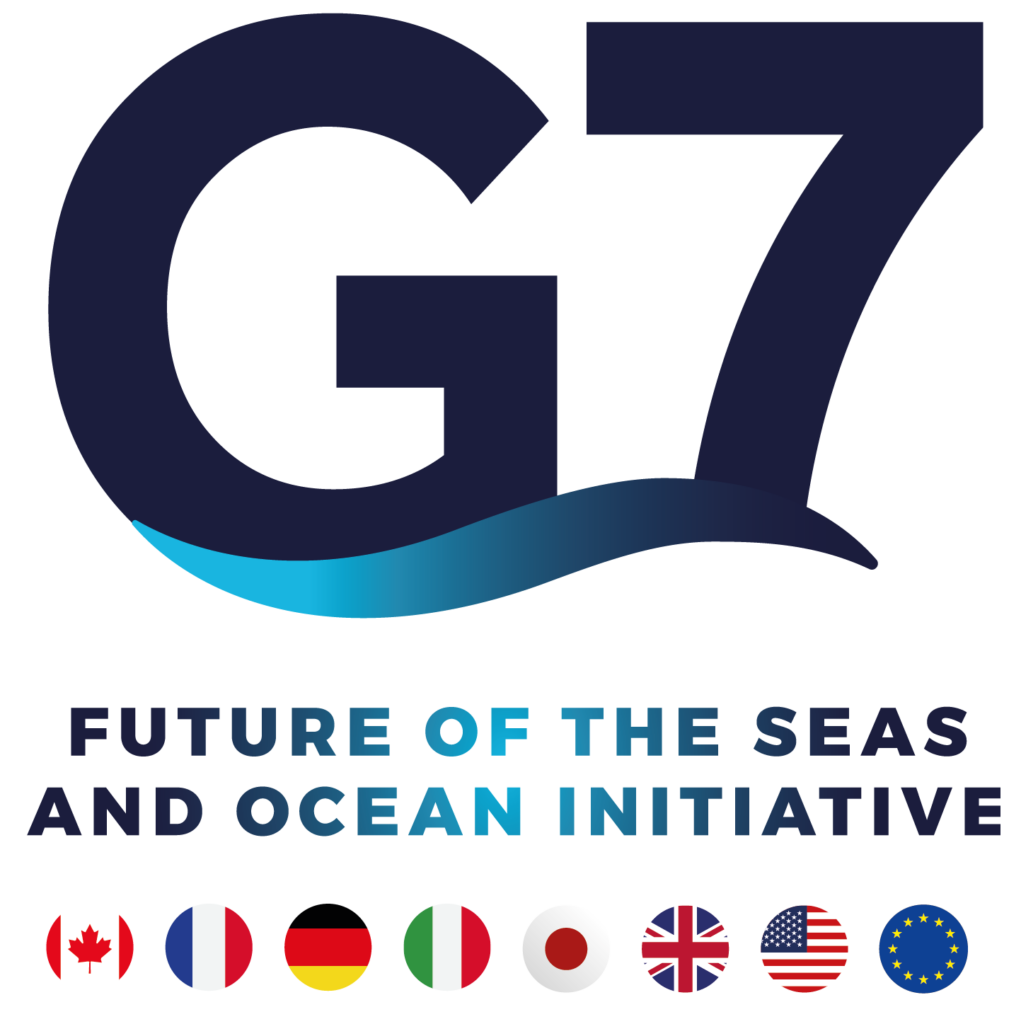The G7 FSOI working group brings together government representatives and scientists from G7 nations and the European Union to address Ocean issues where coordinated joint actions are needed to advance global ambitions.
Digital Infrastructure and Prediction Systems
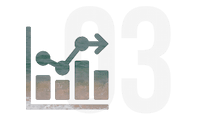
Information for decision making
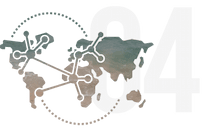
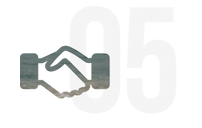
The working group meets annually to review common priorities and emerging issues, and to identify how the combined national actions of the G7 can advance global ambitions. The G7 FSOI does not carry out its own programmes and it does not provide funding for programmes. The G7 FSOI implements intersessional activities to identify opportunities for better cooperation and ‘think-tank’ activities to provide expert advice to G7 members on priority topics. The activities of the working group are often carried out in partnership with global programmes, such as the Global Ocean Observing System (GOOS) or programmes of the UN Decade of Ocean Science for Sustainable Development.
The G7 FSOI work plan responds to priorities of the G7 Members highlighted in the G7 Science and Technology Ministers Communiques and the G7 Climate, Energy and Environment Communiques, as well as the G7 Ocean Decade Navigation Plan and the G7 Ocean Deal, with the goal of enabling the G7 to connect science to policy and to drive innovative solutions to ocean challenges and a sustainable ocean economy.
The 2025 priorities of the G7 FSOI Working Group are:
Augmented Observing and Forecasting for Marine Life
Objective: Identify priority actions for coordinated G7 support to advance the development of a global observing and forecasting system for marine life by 2030.
Activities: Develop an intersessional activity focused on advancing observing and forecasting, aligned with efforts of existing global marine life efforts, including POGO, the GOOS BioEco Panel, and UN Ocean Decade Programs, including MarineLife 2030, also considering related topics such as low-cost / low-tech monitoring approaches and open data sharing for biological data.
Leading: USA, Germany.
Arctic Ocean Observing
Objective: Increase G7 activities and collaborations to enhance in-situ observation and data sharing in the Arctic, particularly through the use of research vessels to complement the OneArgo program, and to develop human resources to meet current and future needs for polar observing.
Activities: Encourage the continued engagement of G7 experts in the Arctic Ocean Regional Alliance (ArORA) Task Team to develop a strategy, implementation plan, governance structure, and project office needs to implement ArORA as a sub-panel of SAON and in collaboration with GOOS, and to share this strategy with the G7 FSOI Working Group for consideration.
Leading: Japan, EU.
Digital Twins of the Ocean Capacity
Objective: Advance the establishment and support for a DTO governance framework that would enable interoperability, data ontologies, modalities for data sharing, including socio-economic data, the establishment of common standards, efficient DTO architectures, standards regarding the development and connectivity of models, science-policy-society interfaces and ethical standards and guidelines regarding the use of DTOs in decision-making.
Activities: Reaffirm G7 commitment to continue to work through the Decade programme DITTO for international coordination actions on DTO and to encourage G7 national programmes to contribute actively to the DITTO programme and its working groups; to contribute to the development of an overview of existing DTO programmes around the world, coordinated by the EU; and to co-sponsor as the G7 FSOI the Townhall meeting for DITTO at the One Ocean Science Conference, June 2025, Nice, France.
Leads: EU, Japan, Germany, USA, Italy, France
Global Ocean Monitoring Indicators
Objective: Support efforts to develop a global ocean monitoring indicator framework under GOOS and contributing to GCOS to ensure that Ocean indicators are robust and appropriately applied, targeted and interpreted to communicate confidently with the public and policymakers about the Ocean state, its evolution, and extreme events, and in support of sustainability futures. These activities under GOOS should include the development of internationally-agreed guidelines and criteria for Ocean indicators and analyses of needs to improve the scalability and traceability required to provide quality-assured information at the regional scale.
Activities: Continue monitoring the progress of the GOOS indicators task team working to develop the framework and to assess where current Ocean indicators fail to meet established criteria, transparency and traceability; and to work with GOOS to develop and publish a science-policy brief about the indicator framework once finalized to explain their definition, purpose, value, challenges, evolving solutions and ways forward.
Lead: France.
Governance, Coordination, and Sustained Funding for the Observing System
Objective: Explore how to strengthen the overall governance of the global ocean observing system through increased and formalized interactions between the global governance mechanism of GOOS and the national coordination structures that fund and implement the observing system.
Activities: Host a virtual 2025 intersessional activity to consult with GOOS on:
Development of the GOOS implementation plan
Development of National Coordination Structures’ reporting guidelines
Development of best practices for National Coordination Structures
Leads: France, USA
Ocean Carbon
Objective: Increase global capacity to monitor, understand, and predict the ocean’s role in the global carbon cycle by supporting international efforts to address knowledge and data gaps, with a particular emphasis on strengthening the Ocean carbon data synthesis actions that deliver regular data products used in global research, assessments, and operational forecasting.
Activities: Set up an iterative exchange between the Surface Ocean CO2 Atlas (SOCAT) community and the G7 FSOI to develop an implementation plan and governance structure that would be actionable by governments and internationally accepted (e.g., GOOS, WMO Global Greenhouse Gas Watch); to co-host and implement a Funders Forum once the necessary plans have been developed; and to maintain an active dialogue and review progress by GOOS to produce an Ocean carbon observing strategy.
Leads: EU, Germany.
OneArgo
Objective: Strengthen support to implement and maintain the OneArgo array by 2030, working with the International Argo Steering Team to identify scientific, technical, logistical challenges and identify priorities for coordinated G7 investment or joint activities, including opportunities to raise awareness at the highest levels about the use and benefits of Argo data.
Activities: Finalize the science-policy brief initiated in 2024 and to develop an engagement strategy for presenting it effectively to high-level policy makers; to implement the engagement strategy and raise awareness of OneArgo and its need for increased and sustained funding to high-level policy makers; and to explore possible collaboration with the topics on Marine Research Infrastructures Integration and Harmonization (MRI) and Governance.
Leads: Japan, France, USA, Canada
Marine Research Infrastructures Integration and Harmonization
Objective: Strengthen coordination, harmonization, and sharing of national and regional marine research infrastructures to support Ocean research and data delivery as a public service for the global commons, contributing to the global ocean observing system.
Activities: Finalize the work initiated in 2024, namely to develop a common definition of marine research infrastructure in the context of Sustained Ocean Observing; map the existing facilities and observing networks currently sustained by long-term investments; examine differences in funding schemes, operational systems and digital structures that need to be aligned to deliver data to participating members; review and assess the current limitations to sustained operations and barriers to global infrastructure sharing and collaboration; agree on a common vision and strategy for integration and harmonization; strengthen collaborations with the Group of Senior Officials on Global Research Infrastructures (GSO-GRI), including possibly identifying one or two MRIs to use as ‘demonstrators’ or test cases to define them as GRIs using the GSO-GRI framework. The OneArgo and Ocean Carbon (SOCAT) topics were suggested as potential examples to explore. Review the actions of the MRI topic in light of the outcomes of the governance, coordination, and sustained funding topic, with a specific issue to identify with GOOS the core backbone global observing system (Ocean Global Basic Observing Network GBON) and focus on developing those networks as GRIs using the GSO-GRI framework as appropriate.
Lead: Italy
Support for the World Ocean Assessment
Objective: Strengthen support for the World Ocean Assessment and promote the uptake and use of its reports.
Activities: Consider ways and means to support and / or promote the WOA event being organized at UNOC to present preliminary results of the 3rd Assessment Report.
Lead: Germany
A list of G7 FSOI intersessional activities can be found here
2024
- Marine Research Infrastructure Integration and Harmonization workshop, hybrid, Bologna, Italy, 12 July 2024. The workshop gathered representatives from national agencies or ministries who finance ocean observing networks, leading experts and/or managers of national or regional marine research infrastructure/observing networks, Global Ocean Observing System (GOOS), national focal points, and relevant experts from the Group of Senior Officials on Global Research Infrastructures. Dedicated to leveraging the potential of marine research infrastructures for sustained ocean observing, participants provided advice on how other global research infrastructures have been established and operated. Lead organizer: Italy with support from the UK
- Workshop on the Governance, Coordination, and Sustained Funding for the Observing System topic (Lead organizers: France, USA)
2023
- G7 FSOI co-sponsorship of the Integrated Ocean Carbon Research (IOC-R) workshop (3-5 May, European Commission, Brussels) to synthesize information on new and existing ocean carbon projects, programmes and initiatives both within and outside of the Ocean Decade, to discuss knowledge gaps and emerging ocean carbon issues, to revise the Integrated Ocean Carbon Research (IOC-R) Review and Vision document, and to establish an Ocean Decade Community of Practice focusing on ocean carbon. The IOC-R working group is co-sponsored by the Intergovernmental Oceanographic Commission (IOC), the Scientific Committee on Oceanic Research (SCOR)/-IOC International Ocean Carbon Coordination Project (also serves as the GOOS biogeochemistry panel), the Global Carbon Project, World Climate Research Programme (WCRP), Climate and Ocean Variability, Predictability and Change (CLIVAR), the International Convention for the Safety of Life at Sea (SOLAS), and Integrated Marine Biosphere Research (IMBeR). (Lead organizer from the G7 FSOI: EU).
- G7 FSOI co-organization of an international workshop on Marine Life Observing and Forecasting in collaboration with the GOOS Bio/Eco panel, titled: “Towards a global marine plankton observing network: development of a strategy and implementation plan.” The workshop will focus on identifying ways to better connect large-scale ocean surface observation with the under-surface fast-developing observation capacities to advance knowledge on ecological processes and confidence in forecasting, as well as actions to advance FAIR data and the interoperability of plankton dataspaces. (Lead organizer from the G7 FSOI: EU). Summary report: https://www.g7fsoi.org/wp-content/uploads/2023/10/Plankton-workshop-report-11102023_final.pdf)
2021-2022
G7 FSOI activities were carried out through two types of engagement:
- Resource Strategy Groups, which bring together G7 government representatives responsible for funding ocean observations to agree on common investment priorities and implementation strategies, or to carry out reviews and foster dialogues on G7 ocean observing governance, coordination, and funding mechanisms.
- Scientific and Technical Support to GOOS Expert Groups, where the G7 FSOI Coordination Centre provides support to the GOOS Expert Groups to address G7 priority issues, particularly to enhance observation capacity in under-sampled areas for under-sampled variables.
Click here for the full list of activities during this period.
